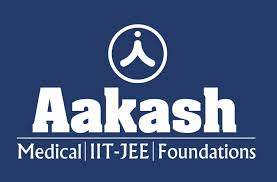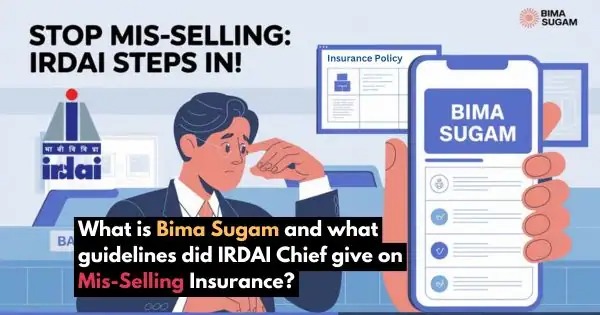Girish Chandra Gupta, J.@mdashThe facts of the case briefly stated are that the writ petitioner is alleged to have committed an act of misconduct in allowing some pilgrims to leave India for the purpose of Haj without depositing the requisite fund with the Haj Committee. The writ petitioner''s case is that he acted bonafide and there was no malafide intention on his part. It is, however, true that the pilgrims were allowed to leave India without payment to the Haj Committee. There appears to have been a general complaint by the Central members staff working at the office of the State Haj Committee were interrogated and the Statements made by them were recorded in writing. The respondent authorities were of the view that the writ petitioner was guilty of misconduct and proposed to punish him. A show cause was issued to which the writ petitioner replied stating that he had acted bonafide and that there had been no financial loss to the Haj Committee. The respondents thereafter dismissed the writ petitioner from service. It is the order of dismissal which is under challenge. There is no dispute that no formal charge sheet was issued to the writ petitioner nor was any formal enquiry based on any charge sheet held.
2. Mr. Gupta, learned Senior Advocate, appearing for the respondent authorities, submitted that the mere fact that no formal enquiry was held would not vitiate the order of dismissal because the writ petitioner knew for certain as to what was the charge against him and he had admitted his guilt.
3. Mr. Maiti, learned Advocate, appearing the writ petitioner submitted that the respondent authorities never did write to the petitioner disclosing the charges against him nor the particulars thereof were ever disclosed. He submitted that in case the respondent authorities relief on the letter written by the petitioner, then the letter should have been taken into consideration in its entirety which would go to show that the petitioner acted bonafide. If that is the letter on the basis whereof the writ petitioner is sought to be dismissed, then obviously they have not taken into consideration the evidence that the acted bonafide.
4. Mr. Gupta learned Senior Advocate cited a Judgment of the Supreme Court in the case of
22. The principle of natural justice, it is trite is no unruly horse. When facts are admitted, an enquiry would be an empty formality. Even the principle of estoppel will apply (See Gurjeewan Garewal (Dr.) v. Dr. Sumitra Dash). The principles of natural justice are required to be complied with having regard to the fact situation obtaining therein. It cannot be put in a straitjacket formula. It cannot be applied in a vacuum without reference to the relevant facts and circumstances of the case. (See State of Punjab v. Jagir Singh and Karnataka SRTC v. S.G. Kotturappa).
5. In this Judgment Their Lordships opined that a limited enquiry was indispensable. He cited another Judgment in the case of
The question as to what extent, principles of natural justice are required to be complied with would depend upon the fact situation obtaining in each case. The principles of natural justice cannot he applied in vacuum. They cannot be put in any strait jacket formula. The principles of natural justice are furthermore not required to be complied with when it will lead to an empty formality. What is needed for the employer in a case of this nature is to apply the objective criteria required for arriving at the subjective satisfaction. If the criteria required for arriving at an objective satisfaction stands fulfilled, the principles of natural justice may not have to be complied with, in view of the fact that the same stood complied with before imposing punishments upon the respondents on each occasion and, thus, the respondents, therefore, could not have improved their stand even if a further opportunity was given.
6. This Judgment cited by Mr. Gupta, in my view, does not render any assistance because that was a case wherein the rights of a temporary employee to be absorbed were in question.
7. Mr. Maiti learned Advocate appearing for the writ petitioner submitted that the minimum which the employer is liable to do is to disclose the charges against the delinquent with full particulars and the evidence by which the charges are sought to be proved and to afford the delinquent an opportunity to defend himself. In support of his submission. he relief on three several Judgments of the Supreme Court reported in
8. After considering the rival contentions of the learned Advocates, this Court is satisfied that by not giving a chargesheet or even an informal chargesheet disclosing the charges with full particulars thereof, the petitioner was deprived a charge to defend himself. The interrogation and the statements of the petitioner relied upon by the respondent authorities is in the nature of a preliminary enquiry. It was open to the respondent authorities to frame charges giving full particulars and then call for an answer. This is the minimum which the authorities should have done. The admission, if any, can be used at the enquiry. It would then be open to the writ petitioner to make his submissions, if any, with regard to the alleged admission and thereafter if the enquiry officer is of the view that the admission was voluntarily made and was factually true, then he can act upon it and can decide as to whether the charges have been proved. It would thereafter be open to the disciplinary authority to take such steps as may be permissible in accordance with law. If any authority is needed for the view which I taken, reference can be made to the Judgment of the Apex Court in the case of
9. For the aforesaid reasons, the order under challenge is set aside. The writ petitioner shall, however, not be reinstated. It will be open to the respondent authorities to issue the chargesheet and to conclude the Departmental proceeding as early as possible preferably within four months. The question of reinstatement and back wages would depend upon the outcome of the enquiry. It is, however, made clear that in case the enquiry is not concluded during the stipulated period, the petitioner shall stand reinstated. This is. however, subject to fullest cooperation of the writ petitioner, and, in case, he is found to be instrumental in delaying the enquiry, the reinstatement shall not take place. There shall be no order as to costs.
Urgent xerox certified copy of this order be supplied to the parties, if applied for, as early as possible.

